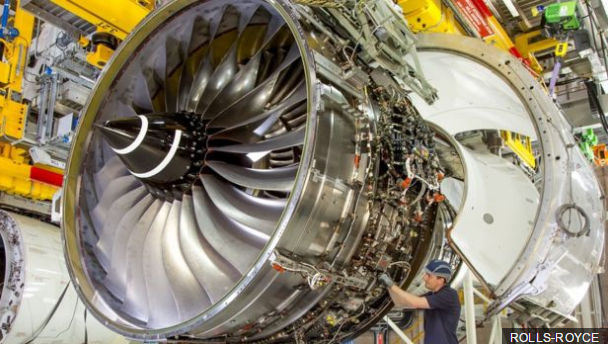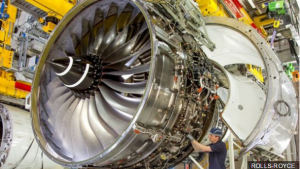
Rolls Royce to pay £671m to settle corruption cases with UK and US authorities

British Engineering giant Rolls-Royce will pay £671m to settle corruption cases with UK and US authorities.
The UK’s Serious Fraud Office (SFO) found a conspiracy to corrupt or failure to prevent bribery by Rolls-Royce in China, India, Indonesia, Thailand, Russia, Nigeria and Malaysia.
A UK court ruled the aerospace firm would pay £497m plus costs to the SFO, which conducted its biggest ever investigation into the firm, which revealed 12 counts of conspiracy to corrupt or failure to prevent bribery in seven countries. Rolls- Royce said it would pay $170m (£141m) to the US Justice Department, and a further $26m (£21.5m) to Brazilian regulators.
The judge described Rolls-Royce as “ a jewel in the UK’s industrial crown”, makes engines for military and civil planes as well as for trains, ships and nuclear submarines and power stations.
The agreement between the SFO and Rolls-Royce, approved by the court on Tuesday, is known as a deferred prosecution agreement (DPA). This is only the third such agreement that the SFO has struck since they were first introduced into UK Law in 2014. They allow organisations to pay huge penalties but avoid prosecution if they freely confess to economic crimes such as fraud or bribery.
The case of suspected corruption or bribery detailed by the SFO included:
In China, Rolls-Royce staff agreed to pay $5m to CES, a Chinese-owned Chinese Airline, while negotiating the sale of T700 engines. According to SFO said some of the money was intended to pay for employees of the Chinese airline to attend a two-week MBA course at Columbia University and enjoy “four-star” accommodation and lavish extracurricular activities”.
In Indonesia, senior Rolls-Royce employees agreed to pay $2.2m and gave a Rolls-Royce Silver Spirit car to an intermediary, in respect of a contract for Trent T700 engines, used in aeroplanes according to SFO.
In Thailand, Rolls-Royce agreed to pay $18.8m to regional intermediaries, and some employees of Thai Airways in the purchase of T800 engines by Thai Airways.
In India, the cases relate to a time when the use of intermediaries in connection with Indian government defence contracts was restricted by Indian authorities. “ The terms of some Rolls-Royce defence contracts contained undertakings that intermediaries has not been used, but the company continued to use an intermediary and said the payments were for “general consultancy services” rather than commission.
In its statement, Rolls-Royce chief executive Warren East said: “ The behaviour uncovered in the course of the investigations by the SFO and other authorities is completely unacceptable and we apologise unreservedly for it.
“ The past practices that have been uncovered do not reflect the manner in which Rolls-Royce does business today. We now conduct ourselves in a fundamentally different way. We have zero tolerance of business misconduct of any sort “.
Britain’s accountancy watchdog has opened an investigation into KPMG’s audit of the accounts of aero-engine maker Rolls-Royce.
The Financial Reporting Council (FRC), said in a statement “The FRC has commenced an investigation under the Audit Enforcement Procedure into the conduct of KPMG Audit Plc, one of the world’s largest accountancy firms, in relation to the audit of the financial statements of Rolls-Royce Group plc for the year ended 31 December 2010, and of Rolls-Royce Holdings plc for the years ended 31 December 2011 to 31 December 2013.
“The decision to investigate follows the SFO announcement on 17 January 2017 of a Deferred Prosecution Agreement between the SFO and Rolls-Royce which relates to offences including conspiracy to corrupt and a failure to prevent bribery.”
KPMG has audited Rolls-Royce for 26 years but is due to be replaced next year by PwC.
